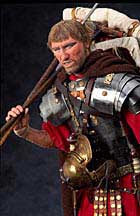
| Telephone: 805-893-3806 | Email: jshelton@classics.ucsb.edu |
Professor
Ph.D., Berkeley 1974
Roman social and cultural history; Attitudes toward animals in the ancient and modern world; Roman and Greek tragedy; Roman epistolography.
Books
- As the Romans Did (second edition, Oxford 1998)
- Seneca's Hercules Furens: Theme, Structure, and Style (Göttingen 1978)
- Slavery and the Roman Literary Imagination (Cambridge University Press, 2000)
Abstract: "The study of slavery poses significant challenges for classical scholars. Slaves were numerous and ubiquitous in Roman society, and their almost constant presence surely affected the thoughts and behaviors of free persons. Many ancient writers, from almost every genre, provide information about the practice of slavery, but they do not describe what it was like to be a free person surrounded by and dependent upon other human beings whom one considered inferior, yet essential. The proverb quoted by Seneca, totidem hostes esse quot servos, reveals that the pleasures and profits of slave ownership were accompanied by anxieties. These anxieties are the topic of this engaging book. Fitzgerald analyzes representations of slavery in literary texts in order to illuminate the ways in which slave owners imagined, structured and interpreted their experiences of being attended by servants. In the introduction, Fitzgerald provides several definitions of the phrase "living with slaves," which he uses throughout to denote the situation of the slave owner. (Fitzgerald generally uses the noun "master" to designate the dominant figure in the relationship, and masculine pronouns to refer to slaves.) He notes that the Romans inherited from the Athenians a conceptual structure that defined slavery and freedom, like body and mind, as polar opposites, but he suggests that it was difficult to reconcile this [End Page 599] theoretical opposition with the various interactions between slaves and free persons in everyday life."
Selected Articles
- "Putting Women in Their Place: Gender, Species and Hierarchy in Apuleius' Metamorphoses", in Defining Gender and Genre in Latin Literature, Peter Lang, New York (2005), pp. 301 - 329
- "Dancing and Dying: The Display of Elephants in Ancient Rome Arenas", Daimonopylai, (ed. M. Joyal and R. Egan, Winnipeg 2004) 363-38
- "The Spectacle of Death in Seneca's Troades", Seneca in Performance, (ed. George Harrison, London 2000) 87-118
- "Elephants, Pompey and the Reports of Popular Displeasure in 55 B.C.", Veritatis Amicitiaeque Causa, (ed. S. Byrne and E. Cueva, Wauconda 1999) 231-271
- "The Contributions of Ancient Greek Philosophy to the Modern Debates about Animal Use", Ancient Greece and the Modern World, (Patras 1998) 85-93
- "Family Matters: The Structure and Dynamics of the Ancient Roman Family", Laetaberis 11 (1996) 1-27
- "The Use and Abuse of Animals in Lucretius, De Rerum Natura", Eranos 94 (1996) 1-26
- "Paradigm and Persuasion in Seneca's Ad Marciam", Classica et Medievalia 46 (1995) 157-188
- "Contracts with Animals: Lucretius, De Rerum Natura", Between the Species 11 (1995) 115-121
- "The Display of Elephants in the Ancient Roman Arena", ISAZ Newsletter (2001) 2-6




